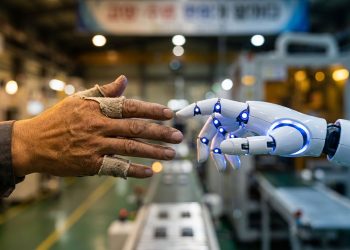The government has unveiled a blueprint to establish Korea as a global hub for international cooperation in science and technology. As part of this initiative, the government plans to expand global research and development (R&D) investment to 6-7% of the total R&D budget to boost investment in the sector.
The government will reorganize the international cooperation system for science and technology to support this transformation. This includes enacting relevant legislation and strengthening overseas cooperation bases, ensuring a more robust framework for fostering international partnerships and collaborations in scientific and technological fields.
The Ministry of Science and ICT announced the “Science and ICT International Cooperation Policy Direction” at the 2nd World Korean Science and Technology Conference held at the Korea Science and Technology Center in Gangnam-gu, Seoul, on the 10th. This policy outlines Korea’s strategy to enhance international collaboration in science and technology amidst a global race for technological supremacy.
The United States, having enacted the Semiconductor Act in August 2022, continues to implement policies and legislation to safeguard its technology and supply chain, including bio-executive orders. Furthermore, the U.S. is strengthening strategic partnerships through the establishment of a core and emerging technology (CET) consultative body with Korea.
Meanwhile, Europe is promoting technology development with a European focus through the ‘Horizon Europe’ program. Experts note that the landscape of international scientific and technological cooperation is shifting from a value-neutral approach to one characterized by competition and strategic alliances among major powers.
The strategy for global cooperation in science and technology aims to protect and advance Korea’s scientific and technological capabilities in the current international landscape. It includes global R&D promotion strategies, cross-country diplomatic initiatives, and support for technology companies’ international expansion.
As part of this strategy, the government is prioritizing the expansion of global R&D investment. This year’s global R&D investment has reached a record high of 1.8 trillion won, accounting for 6.8% of the total R&D budget, up from 1.6% last year. The plan is to maintain this investment level at 6-7% of the total R&D budget next year. Alongside increasing investment, the government will reorganize its system, starting with the enactment of the “Act on Promotion of International Cooperation in Science and Technology.”
The new law will address fundamental aspects of global R&D cooperation, including research project selection, evaluation, agreements, and security management. Currently, global cooperation provisions are scattered across various laws without a systematic framework. After consultations with relevant ministries, the detailed plan and legislative specifics will be finalized.
Furthermore, maintaining and enhancing small cooperation bases overseas and fostering exchange and collaboration among domestic and international researchers remain critical tasks. Minister of Science and ICT Lee Jong-ho emphasized the increasing importance of strategic cooperation and solidarity in high-tech fields amidst intensifying global competition.
Also Read:
- Hyundai Opens Preorders for Casper Electric Mini SUV in South Korea
- Hanwha and KT Partner to Advance Smart Mining Solutions
- AI and 6G: Singtel and SK Telecom Collaborate to Shape the Future of Telecommunications
- EV Battery Maker SK On Declares ‘Emergency Management: FT
- KT Corp. Launches Upgraded Genie TV Tab 3 with Enhanced Features







